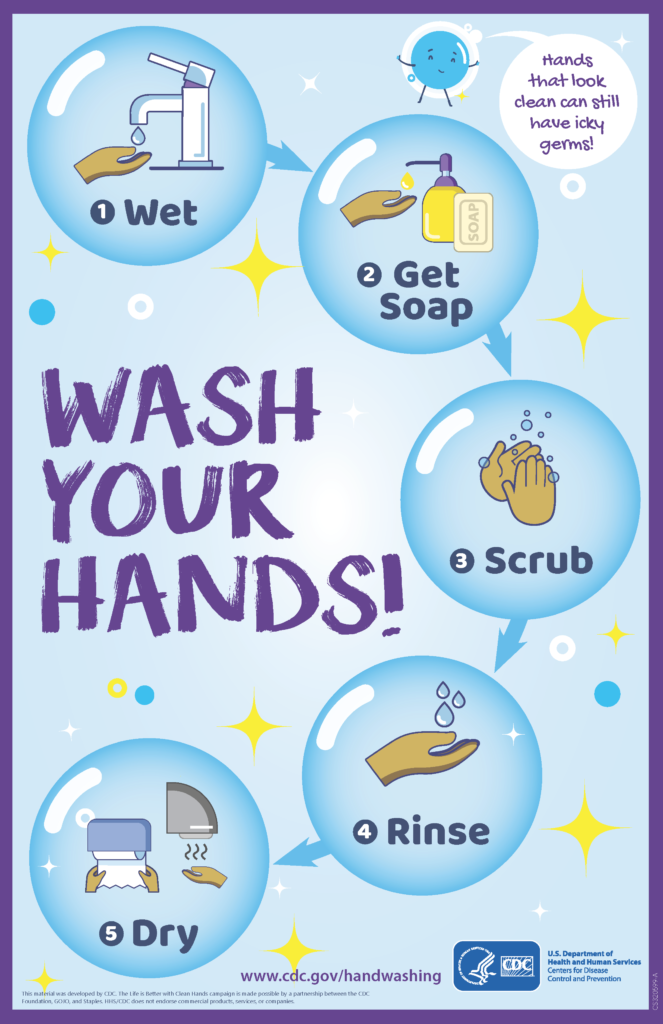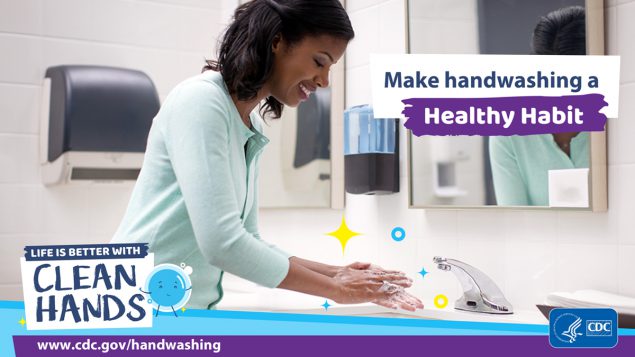It’s National Handwashing Awareness Week
The Centers for Disease Control and Prevention (CDC) recognizes the first week in December as National Handwashing Awareness Week. According to the CDC, regular handwashing is one of the best ways to remove germs, avoid getting sick, and prevent the spread of germs to others. Germs can spread when you:
- Touch your eyes, nose, and mouth with unwashed hands
- Prepare or eat food and drinks with unwashed hands
- Touch surfaces or objects that have germs on them
- Blow your nose, cough, or sneeze into hands and then touch other people’s hands or common objects
In line with its mission to promote health and safety, NYCHA’s Environmental Health and Safety Department would like to share the following recommended steps for washing your hands:
- Wet your hands with clean, running water (warm or cold); turn off the tap; and apply soap.
- Lather your hands by rubbing them together with the soap. Lather the backs of your hands, between your fingers, and under your nails.
- Scrub your hands for at least 20 seconds.
- Rinse your hands well under clean, running water.
- Dry your hands using a clean towel or air dry them.
If soap and water are not available, you can use an alcohol-based hand sanitizer that contains at least 60 percent alcohol (the alcohol percentage is noted on the product label).
To keep you and your family healthy, the key times to wash hands are:
Before…
1. Preparing food
2. Eating food
3. Caring for someone who is sick
4. Treating a cut or wound
After…
1. Preparing food
2. Eating food
3. Caring for someone who is sick
4. Treating a cut or wound
5. Using the toilet
6. Changing diapers
7. Blowing your nose, coughing, or sneezing
8. Touching an animal, animal feed, or animal waste
9. Handling pet food or pet treats
10. Touching garbage
If these simple steps are practiced daily, your healthy hands can lead to a heathy home.
For more information on handwashing, please visit the following links:
- Life is Better with Clean Hands | Handwashing | CDC
- Keep Your Germs to Yourself! (ny.gov)
- Hand Sanitizer Fact Sheet (nyc.gov)








